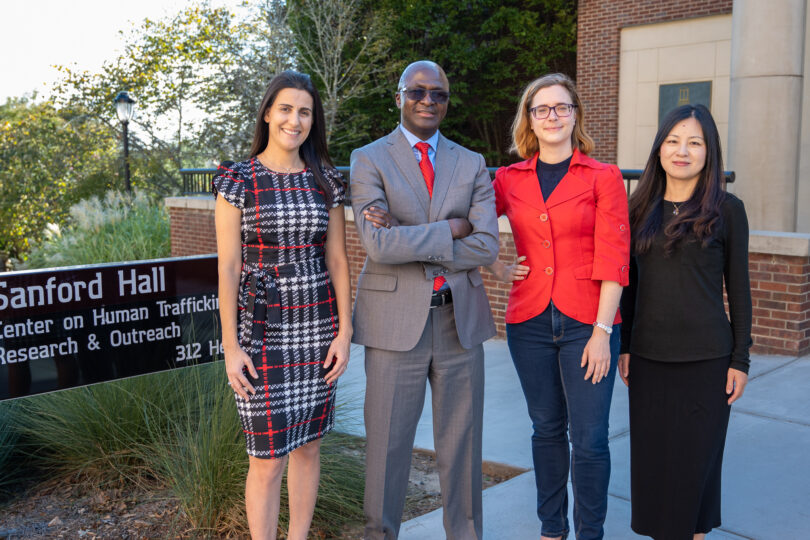The University of Georgia will receive $2.2 million grant from the U.S. Department of State to expand research on labor trafficking in southern Africa in the first stage of a long-term project.
The new award broadens the work of the UGA-based Center on Human Trafficking Research & Outreach (CenHTRO), which has previously received approximately $24 million from the State Department’s Office to Combat and Monitor Trafficking in Persons for its global counter-trafficking projects.
This new study will assess the prevalence of labor trafficking of at-risk youth and young adults from Malawi, Zambia and Zimbabwe. The research marks the first phase of a large international and multi-institution grant from the State Department that will deploy innovative financial capability interventions to reduce labor trafficking in the three countries.
“In terms of international efforts to address labor trafficking, the southern part of Africa is very much neglected,” said CenHTRO Director David Okech, principal investigator and professor of social work. Lydia Aletraris, associate research scientist in the School of Social Work and CenHTRO research director, serves as co-principal investigator.
“Research and advocacy is more so focused on exploitation of Africans migrating to Europe from western Africa or labor trafficking victims from eastern Africa to the Middle East,” Okech added. “Many people migrate to southern Africa, specifically the country of South Africa because of perceived opportunities in that country.”
High unemployment and poverty in the sending countries leads to increased risk of exploitative labor migration, especially among younger populations, who are attracted to South Africa by opportunities in construction, mining and other industries.
Data produced in phase one will inform a second phase that includes interventions that aim to increase access to financial services and improve digital financial literacy of survivors and populations at risk of experiencing labor trafficking.
Previous research by CenHTRO faculty indicates that anti-trafficking efforts can’t be successful without sustainable economic empowerment strategies. Research shows that culturally adapted financial literacy and accessibility interventions can empower vulnerable populations, making them overall more resilient against human trafficking.
“The underlying issue in this part of the world is just economics,” Okech said. “When people are poor, they are willing to walk across countries searching for opportunities. They take risks and become at-risk of exploitation. Without economic empowerment, no effort to reduce the prevalence of human trafficking in sub-Saharan Africa will succeed.”
Lydia Aletraris, associate research scientist in the School of Social Work and CenHTRO research coordinator, serves as co-principal investigator. Other investigators include Laura Zimmerman, associate professor in the department of economics in the Terry College of Business and the School of Public and International Affairs, and associate professor Mary Ager, assistant research scientist Anna Cody, and assistant research scientist Hui Yi from the School of Social Work.
CenHTRO will partner with the Center for Social Development at Washington University in St. Louis, the University of North Carolina School of Social Work, and the University of Illinois School of Social Work in future phases of the project.
For more information about CenHTRO, visit www.cenhtro.uga.edu








